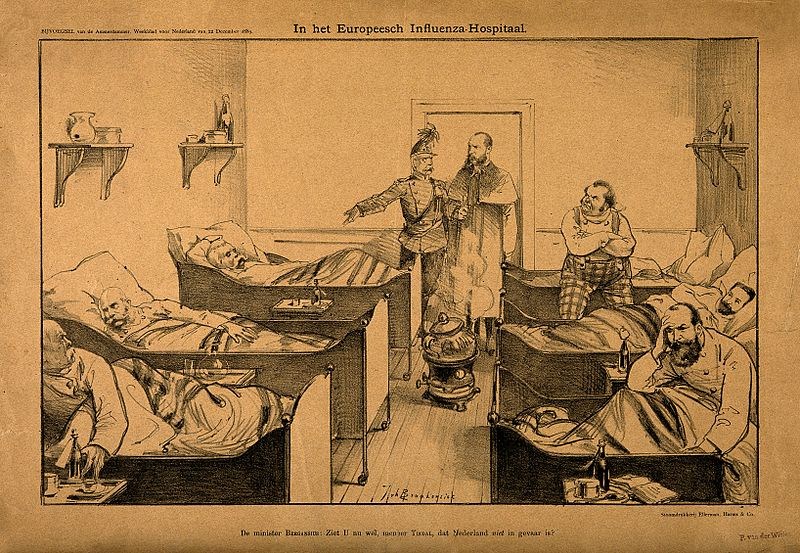It is possible that the world experienced a deadly coronavirus epidemic 130 years ago as well, according to Belgian virologist Marc Van Ranst.
Many physicians, as well as the population, talked about the "Russian flu," as the rumours about the disease that spread across the continent in 1889-1890, came from the east. It did not have an official name, but was mainly recorded as "influenza" by doctors, meaning they believed it to be a simple flu virus.
People who were infected got severely ill, according to Belgian virologist Marc Van Ranst. "With a lot of symptoms that were totally atypical for a flu," he told De Volkskrant.
Initially, the people in Europe thought that their better hygienic standards would prevent the flu, that was spreading across Russia, from crossing over. One inspector of the Brussels health service even wrote that the so-called Russian flu was "a disease from which no one dies."
The virus, however, led to a pandemic which resulted in a total of at least 1 million to 1.5 million deaths within a few months.
Related News
- How do Belgium's coronavirus and Spanish flu measures compare?
- Coronavirus: 71 new infections, 17 hospital admissions in Belgium
- Face mask distribution: when and how?
"Extreme fatigue, high fever, coughing, severe headaches. Russian sources also noted a loss of smell and taste. Very conspicuous. Because that is a symptom we are also seeing right now," said Van Ranst. "Already in 1890, people said that it was impossible that this was a flu. I do not believe that either. According to my studies, the world then faced a coronavirus pandemic," he added.
This is not the first time that Van Ranst attributes the Russian flu not to a flu virus, but to a coronavirus. The coronavirus does not only present as the Covid-19 strain that is now spreading across the world, but is a group of viruses that cause respiratory tract infections that can range from mild to lethal in humans.
In 2005, he and his lab studied the OC43 virus, which today still accounts for 10-15% of all colds, especially the heavier respiratory tract infections.
"Our analyses traced the origin of the OC43 virus back to, coincidentally or not, around the year 1890. Then, in our opinion, the bovine coronavirus jumped over to humans," Van Ranst said, adding that it is not clear if there was an intermediate link involved or not.
"So, it is very tempting to say that what we are experiencing now also happened in 1890. However, I do not have evidence, of course. You would have to examine lung material from a patient at that time," Van Ranst said. "But I think it is a very plausible line of thinking," he added.
Additionally, the history of the OC43 virus may give hope for the future of the coronavirus that causes Covid-19. "The OC43 virus has been severely weakened. That does indeed make us hope that it will also happen like that now, but we do not yet know how fast that will go," Van Ranst said.
Maïthé Chini
The Brussels Times

